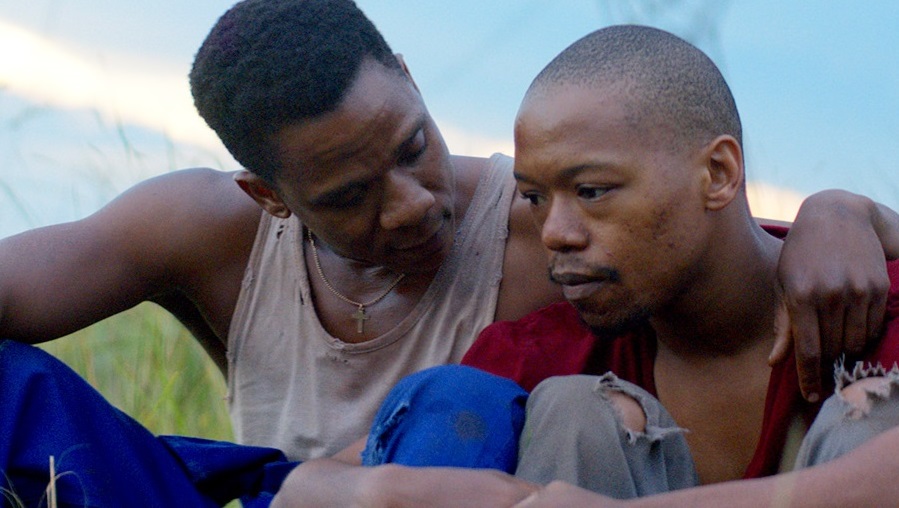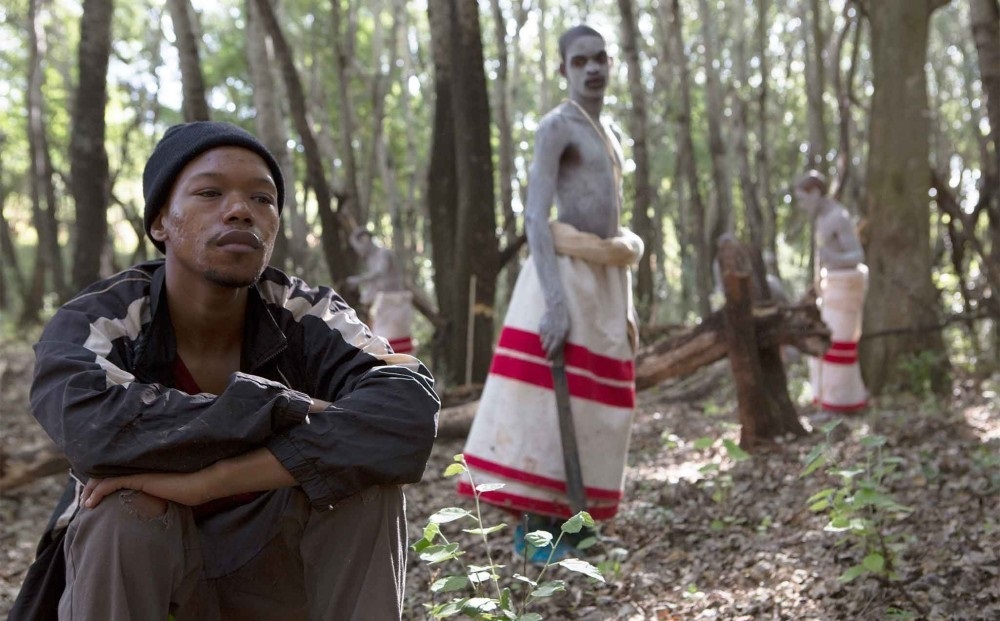Director, playwright and novelist Neil Bartlett has been making theatre and causing trouble since the 1980s. He made his name with a series of controversial stark naked performances staged in clubs and warehouses, then went on to become the groundbreaking Artistic Director of the Lyric Hammersmith in London in 1994. Since leaving the Lyric in 2005, he’s worked with collaborators as different as the National, Duckie, the Bristol Old Vic, Artangel, and the Edinburgh International Festival.
Four of his previous Brighton Festival shows have been at the Theatre Royal: his Oscar Wilde homage For Alfonso in 2011; his one-man show What Can You Do in 2012; The Britten Canticles with Ian Bostridge in 2013; and his play Stella in 2016. This year he is collaborating with performer Francois Testory and electronic sound-artist Phil Von to present Medea, Written In Rage (26th May), a tour-de-force solo reimagining of the classical legend .
“The Theatre Royal is one of my favourite venues in the country," he says “It's a real sleeping beauty of a building, and somewhere you can create a real rapport between the performer and the crowd. Medea is a pretty spectacular piece - big frock, big sound, big performance - but it's also very personal, very intense, and I think the stage of the Royal is going to be ideal"
A Brighton Festival regular, then, Neil's picks of this year are as follows (all dates are in May).
The Myth of Sisyphus (11th, Grand Central): “Camus is a writer we could all use to pay attention to right now - he's all about how to live in impossible times. And what a great idea this is. Simon is a terrific performer - so go for the day and really get stuck in.”
Yomi Sode’s Coat (10th-11th, Brighthelm Centre): “I cut my teeth making solo out of stories that nobody was hearing at the time, and I'm fascinated to see how a whole new generation is right now using solo performance to tell a whole new set of stories. Plus he's dishing up stew!”
Britten’s War Requiem (12th, Dome): “I love the way the festival is unafraid to let the great voices of the past ring out for new audiences. The Requiem is a masterpiece of political rage and yearning, in lots of unexpected ways. It’s going to make an amazing companion piece to Hofesh Schecter's Grand Finale. And I have to say that with those three soloists – blimey! - you're never going it hear it sung more beautifully or with more personal commitment.”
Joan (13th -14th, The Basement): “This was one of my favourite shows of last year when it toured - punchy, funny, in your face. Drag King Heaven.”
Ursula Martinez (14th, Old Market, FREE ADMISSION): “Takes solo lady-performance and really weaponises it. There are a lot of great queer voices in the festival this year, and I think Ursula might be the one who's going to be showing us all how it's done.”
Brownton Abbey (25th, Dome): “With that title, how can we go wrong? This looks like being the party that really brings this year's festival to the boil. Expect fabulousness.”
Ezra Furman (26th, Dome): “A major new voice, perfect for those who like their rock'n'roll really wrecked. And being one myself, I can never resist a man who wears pearls.”
Songs of the Sea (13th, Glyndebourne): “If you know these artists already, then you'll need no persuading; but if you think the classical music programme is maybe not for you, then this might be the show to change your mind. In particular, pianist Julius Drake can make a keyboard speak like nobody else does. In the perfect acoustic at Glyndebourne, his playing is going to be like being given a new pair of ears. Plus those standing seats are only £10.”
Nicola Barker and Nick Harkaway: Future Perfect (13th, Brighton & Hove High School): “When I'm not making theatre, I'm a novelist. My last one, The Disappearance Boy, was set in Brighton in 1953. These two writers are all about trying to find new ways of writing the right now and the just over the horizon. I reckon the conversation will be fascinating for anyone who's thinking ahead about how words actually work these days."
Overleaf: Neil Bartlett and Francois Testory talk about Medea: Written In Rage

 If that sounds like the scenario for a South African Brokeback Mountain, the film’s third character, Kwanda (Niza Jay Ncoyini, pictured below, in background, with Nakhane Touré), disrupts such a dynamic. He comes from a wealthy family in distant Johannesburg, a city boy brought here by his father for the toughening up that the ukwaluka promises. It's not only his trainers that set Kwanda's urban modernity apart from his fellow initiates: Xolani, who has one-on-one responsibility for the youth, easily guesses that he’s different from them in his sexual orientation, too. Kwanda stands at one remove, allowing him a degree of scepticism about the proceedings of the ukwaluka rite (in which respect he surely shares something with Trengove as outsider-director), as well as an insight into what’s going on between the two older men. The Wound draws us into this increasingly uneasy three-sided configuration, one which festers – unlike the physical wound of circumcision, which heals – with dramatic inexorability.
If that sounds like the scenario for a South African Brokeback Mountain, the film’s third character, Kwanda (Niza Jay Ncoyini, pictured below, in background, with Nakhane Touré), disrupts such a dynamic. He comes from a wealthy family in distant Johannesburg, a city boy brought here by his father for the toughening up that the ukwaluka promises. It's not only his trainers that set Kwanda's urban modernity apart from his fellow initiates: Xolani, who has one-on-one responsibility for the youth, easily guesses that he’s different from them in his sexual orientation, too. Kwanda stands at one remove, allowing him a degree of scepticism about the proceedings of the ukwaluka rite (in which respect he surely shares something with Trengove as outsider-director), as well as an insight into what’s going on between the two older men. The Wound draws us into this increasingly uneasy three-sided configuration, one which festers – unlike the physical wound of circumcision, which heals – with dramatic inexorability. There may be big landscapes aplenty in the surroundings, but Paul Özgür’s widescreen cinematography is memorable for its intimacy. Visual elements of Xhosa tradition – the contrasted colours of the initiates’ loincloths, their white body paint (main picture) – aren’t exaggerated, but the film engrosses us in its (for the great majority of its viewers, anyway) unfamiliar world. You guess that making the film must have been a broadly collaborative process, and Trengove’s insight is so much more than merely anthropological (though The Wound certainly feels true on that level, too). Most of all, he has drawn performances from his main trio that may seem at first understated, but in which his characters come to inhabit their roles absolutely. Pared down almost to silence by the end, Nakhane Touré as Xolani proves emphatically that less can be more. You could say exactly the same about the film as a whole: The Wound impresses for its raw, incremental power.
There may be big landscapes aplenty in the surroundings, but Paul Özgür’s widescreen cinematography is memorable for its intimacy. Visual elements of Xhosa tradition – the contrasted colours of the initiates’ loincloths, their white body paint (main picture) – aren’t exaggerated, but the film engrosses us in its (for the great majority of its viewers, anyway) unfamiliar world. You guess that making the film must have been a broadly collaborative process, and Trengove’s insight is so much more than merely anthropological (though The Wound certainly feels true on that level, too). Most of all, he has drawn performances from his main trio that may seem at first understated, but in which his characters come to inhabit their roles absolutely. Pared down almost to silence by the end, Nakhane Touré as Xolani proves emphatically that less can be more. You could say exactly the same about the film as a whole: The Wound impresses for its raw, incremental power.